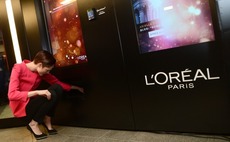
China wine funds: Sour grapes?

Wealthy Chinese may recognize wine’s investment potential, but inexperience, taxation issues and limited access to top-tier vineyards means many domestic wine funds often promise more than they can deliver
While only 50,000 bottles of Chateau Lafite Rothschild are imported into China each year, around 10,000 bottles of this particular Bordeaux were discovered last month in an abandoned house at Wenzhou, Zhejiang province. The government has yet to reveal whether they are counterfeit. If genuine, the collection could be worth up to $16 million.
No other wine captures the Chinese imagination like Château Lafite - according to anecdotal evidence, the going rate for an empty wine bottle from a good vintage is RMB2,900 ($450). In March, the French wine maker sought to embed its brand even deeper in the Chinese psyche, beginning construction on a joint venture winery in Shandong province.
China recently surpassed the UK to become the world's fifth-largest wine market by volume and the beverage is becoming increasingly popular among the wealthier classes. With increased consumption comes a greater appreciation, and some also recognize wine's investment potential.
Last year, the Dinghong Fund - founded by Zhijun Ling, a money manager at Pacific Asset Management - announced plans to raise over RMB1 billion to invest in wines from Bordeaux and Burgundy. In 2010, SociétéGénérale said it was waiting for regulatory approval to invest in Bordeaux wines for Chinese private bank clients.
Establishing a wine fund in China, however, is easier said than done, given the country's short history of investment in these assets, taxation hurdles and inaccessibility to top-tier vineyards. Few wine funds have publicized successful fundraises and none, as far as industry participants can tell, has generated significant returns, although it is still early days.
"Over the last 3-4 years, there have been a number of stories about groups raising moneys from Chinese investors for wine funds, but we've not seen any of these new funds materialise," Andrew della Casa, director of London-based The Wine Investment Fund, which has been operating for nearly ten years since 2003, tells AVCJ.
"There appears to be much confusion over buying wine purely for investment and buying wine for consumption or for a quick return, and most of these funds will not have the requisite fine wine investment expertise although they may be knowledgeable about wine."
Attractive alternative
China is currently the home of the fourth-largest population of high net worth individuals (HNWIs) - defined as those with investable assets in excess of $1 million. These HNWIs numbered 562,000 in 2011, up by more than one third from 2007 levels. At the same time, domestic investment opportunities are limited - chiefly equities and real estate; and the former is struggling while the latter is subject to increasing restrictions - so there is a general desire to diversify among those who have wealth offshore.
According to last year's Capgemini-Merrill Lynch World Wealth Report, of the $10.8 trillion held by Asia Pacific's 3.3 million HNWIs in 2010, 18% was invested in "passion assets" such as wine and other collectibles, compared to 14% in 2009, and 15% globally. That year, Sotheby's saw its fine wine sales more than double to $88.3 million, with takings at the Hong Kong auction up 268%.
As such, international wine funds including Luxemburg-based Noble Crus, a EUR100 million ($131 million) vehicle, have started Asian operations in Hong Kong and Singapore. A handful of wine funds have also been launched China, primarily driven by a surge in fine wine prices from 2009 to mid-2011. The Liv-ex Fine Wine 50 Index - which tracks daily prices of the 10 most recent vintages of Haut Brion, Lafite, Latour, Margaux and Mouton Rothschild - doubled during this period.
Historically, fine wine is also the second best performing asset class after gold, generating close to a 10% annual returns since 1998, according to a report released by international wine fund Wine Asset Managers (WAM).
"The fundamental of the wine fund market is that you have fixed supply of top wines. When they start to mature, people drink it and the supply goes down. At the same time, more people are chasing after them, so prices go up," explains Will Beck, partner of WAM. "When the market drives it up too quickly, a correction happens. In the last 18 months we have seen a 30-35% downward correction, which offers an attractive entry point."
Not every wine is investable. International players like The Wine Investment Fund, Wine Asset Managers and Noble Crus only consider top-tier investable names, which constitute less than 1% of the overall fine wine market and are predominantly focused on Bordeaux. These wines are also subject to taxes and duties equivalent to 48% of cost when they are imported to China. It represents a significant obstacle for investors if they want to hold their stocks in the mainland.
Apart from the taxation problem, Chinese managers - who often unknown in the French fine wine market - may also struggle to get access to the best stock.
"Even you go to Chateau Lafite with a lot of cash, the wine maker will not sell you the wine directly as there is always a long queue waiting to buy their products," Averardo Borghini Baldovinetti, international director of Nobles Crus tells AVCJ. "In the fine wine market, you need to have people on the ground for a long time with the right connections. It's not only a problem of money but a matter of trust and recognition."
This explains why the Dinghong Fund - which claims to be the first government-approved wine fund - has partnered with Philippe Larché, the owner of French wine trader Vintex&VignoblesGregoire. Larché is currently the fund's main supplier and also responsible for on-site logistics and traceability of wine. With a minimum investment of RMB1 million, investors will be locked into the vehicle for five years with an expected annual return of 15%.
Some local wine managers - who don't have connection overseas - may try to focus on buying and selling leading China spirits, such as acclaimed baijiu brand Kweichow Moutai. However, it is difficult to get fair value for the products given the lack of track records in the country's nascent wine investment industry.
The best way?
Should all the aforementioned problems be solved, it is still questionable whether PE is the best format for wine investments. Whereas private equity typically generates a profit from portfolio companies through a combination of multiples arbitrage via the public markets, leveraged finance and operational expertise that increases the intrinsic value, a wine fund manager can do nothing after purchase but wait for an opportune moment to exit.
"As such, the ability of the fund manager is important. You need to diversify in your portfolio where you don't only invest in Bordeaux, but also in Burgundy and other wines," says Baldovinetti of Nobles Crus. "The problem of many funds is that they think there is only Bordeaux. While Bordeaux offers the biggest market in terms of volume of top quality wines, it also offers the highest risks."
As prices may fluctuate over time, both Baldovinetti and WAM's Beck argue that an open-ended fund, which allows investors to come and go at a certain period of time, is a more appropriate structure than a 5+2 fixed-life private equity vehicle. Noble Crus, for example, currently allows investments and withdrawals from its investors every month.
"If I go into a closed fund, I'm stuck for five years until the end of the fund life," Baldovinetti adds. "The good side of an open-ended fund with a monthly or quarterly liquidity versus a private equity fund is that investors can still earn a certain amount of profits without any penalty when they decide to leave the fund early."
Latest News
Asian GPs slow implementation of ESG policies - survey
Asia-based private equity firms are assigning more dedicated resources to environment, social, and governance (ESG) programmes, but policy changes have slowed in the past 12 months, in part due to concerns raised internally and by LPs, according to a...
Singapore fintech start-up LXA gets $10m seed round
New Enterprise Associates (NEA) has led a USD 10m seed round for Singapore’s LXA, a financial technology start-up launched by a former Asia senior executive at The Blackstone Group.
India's InCred announces $60m round, claims unicorn status
Indian non-bank lender InCred Financial Services said it has received INR 5bn (USD 60m) at a valuation of at least USD 1bn from unnamed investors including “a global private equity fund.”
Insight leads $50m round for Australia's Roller
Insight Partners has led a USD 50m round for Australia’s Roller, a venue management software provider specializing in family fun parks.







